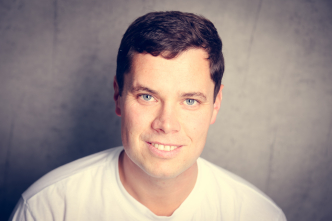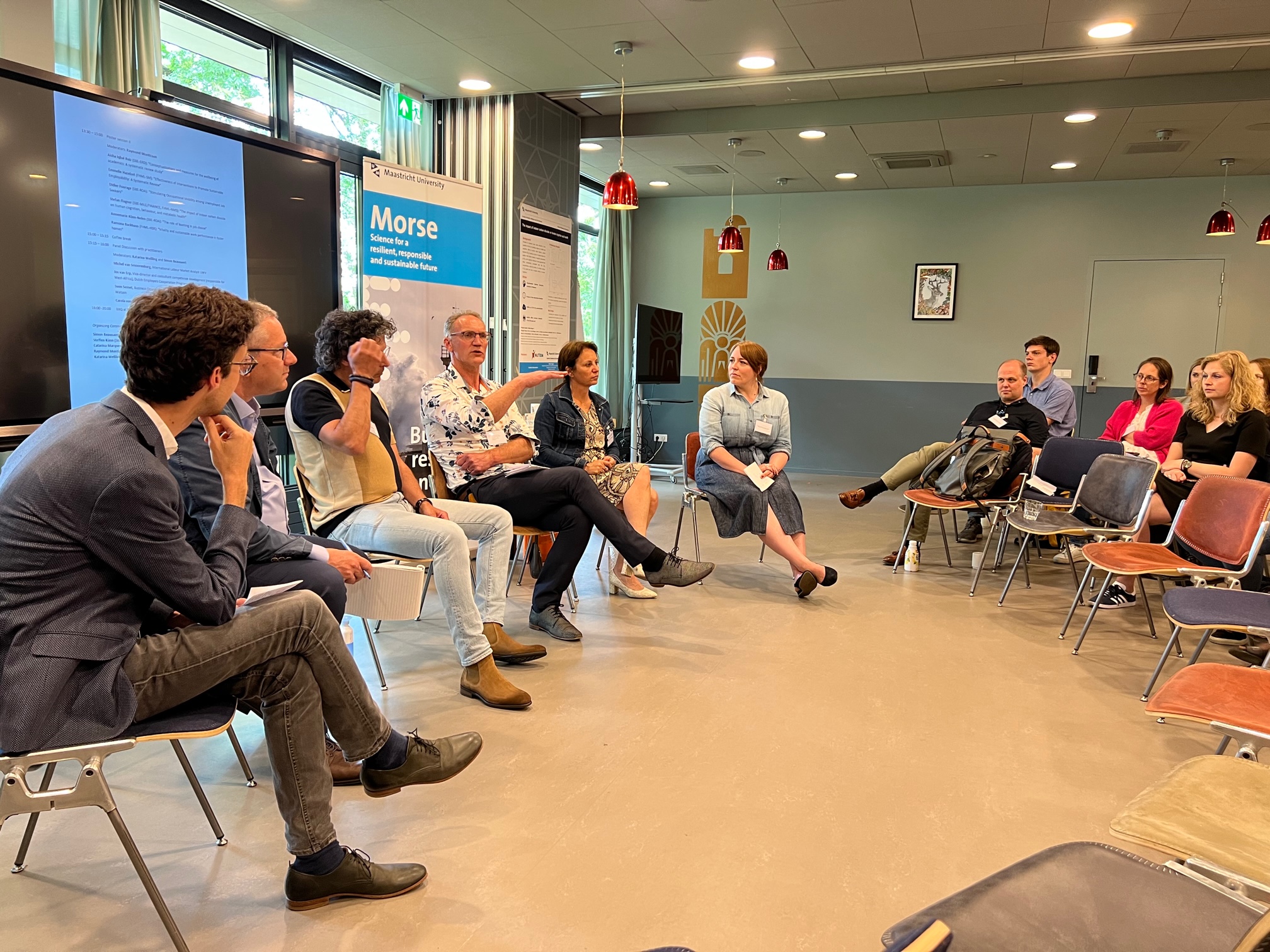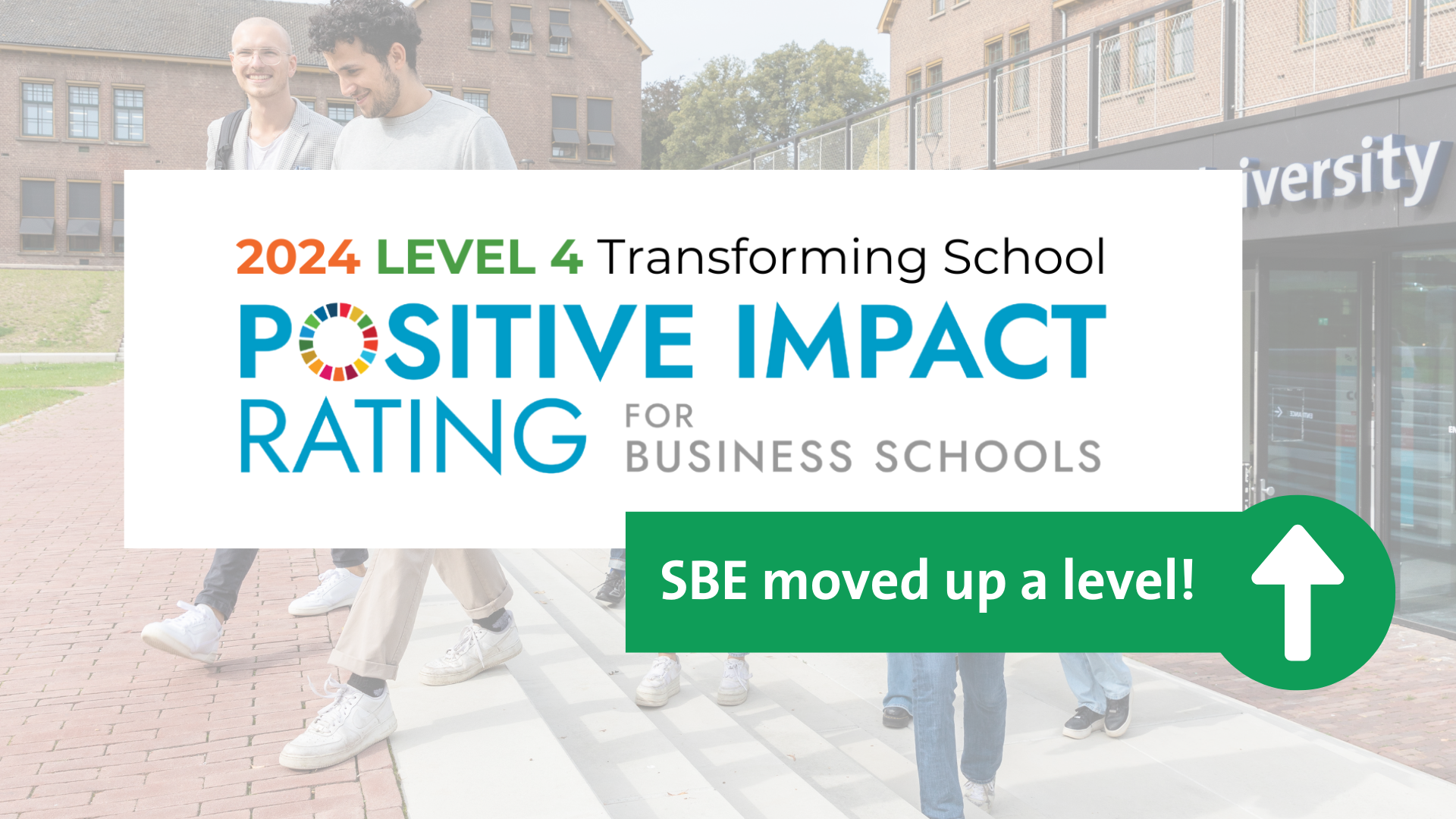Sustainable employment: an interdisciplinary workshop to provide a unique platform for research and practice to meet, to discuss and to experience different perspectives on sustainable employment
Sustainable employment addresses any action that creates the right conditions for employees to have a long, healthy, and happy career.
The high societal relevance of sustainable employment encouraged MORSE researchers to organize an interdisciplinary workshop to provide a unique platform for research and practice to meet, to discuss and to experience different perspectives on sustainable employment.

Associate Professor
Macro, International & Labour Economics, School of Business and Economics

Sustainable employment turned into a buzzword that we encounter every day in different kind of media, and I think it is fair to say that everybody nowadays had heard about it. But what does it actually mean? A simple definition of sustainable employment is that it addresses any action that creates the right conditions for employees to have a long, healthy, and happy career. Creating a sustainable workplace for employees where they can engage, flourish, and develop their talents, simply a place where they like to go and remain working throughout their working life. Implementing measures of sustainable employment is beneficial for firms as it is likely to reduce sickness and absence, and increases the productivity of workers. Finally, investments in sustainable employment are likely to also result into economic growth because it is an investment in people.
Given the high societal relevance of sustainable employment, research fellows at the Maastricht Observatory on Resilient, Responsible & Sustainable Enterprise and Economy (MORSE) recently organized an interdisciplinary workshop to provide a unique platform for research and practice to meet, to discuss and to experience different perspectives on sustainable employment. The workshop on Sustainable Employment: A Multi-disciplinary Perspective was co-funded by the University Fund Limburg (SWOL) and the Graduate School of Business and Economics at Maastricht University (UM) brought together economists, psychologists, health scientists and educational researchers from different faculties at UM working on topics related to sustainable employment. The ultimate goal of the workshop was to find interdisciplinary solutions to societal problems arising due to changing labour markets and making the workplace more sustainable. Another key component of the workshop focussed on the active involvement of practitioners by informing them about UM’s research on the ongoing research topics, as well as by applying UM’s research in order to find solutions to the most pressing questions by policy and other relevant stakeholders. Therefore, the workshop provided a unique platform to meet, discuss and experience different perspectives on sustainable employment.
The workshop clearly showed that there is a large variety of topics addressed by UM researchers from many different faculties, underlying the high complexity of the term sustainable employment. Evidence was presented on how environmental conditions such as CO2 and particulate matter pollution impair workers’ cognition and strategic decision-making capacity. Another stream of research addressed the technological change and showed how progressing digitalization and automatization triggers employment growth (rather than decline), but also how it changes training patterns towards lifelong learning. Building on these findings, a group of researchers investigates how lifelong learning and the development of employability competences can be facilitated by firms as well as the education sector (e.g. the university). Researcher from the Faculty of Health, Medicine, and Life Sciences presented results based on several case studies on different sustainability measures as implemented in different workplaces. This allowed valuable insights into practical restrictions when implementing certain measures and led to the overall conclusion that sustainable employment measures should be tailored towards the individual workplace in order to be effective: “one fits all” solution hardly work. Finally, a large-scale experiment with the Dutch Employment Office (UWV) was presented which investigated information measures in order to stimulate occupational mobility among workers. This is important because increased worker mobility will increase the competition for labour and hence most likely lead to improved working conditions.
In his keynote lecture, Prof. Fred Zijlstra from the Faculty of Psychology and Neuroscience gave a broad overview on the development of employment patterns and work pressure during the last centuries, and how it led to adverse health effects impairing workers’ productivity at the workplace as well as private life. Workers are “switched-on” too often, and are overloaded with administrative tasks for which many are overqualified. The key message was that employers need to change the work design by relaxing work pressure and reorganizing the workplace making it more efficient. This triggered a discussion with economists arguing that employers optimize under current settings, and policy is required to change incentive structures for firms (e.g. due to taxation). Moreover, the currently very tight labour market will also accelerate the development towards more sustainable employment due to increasing competition for labour.
At the end of the day, researchers had the opportunity to engage into a discussion with practitioners on how their current research actually aligns with the actual needs of practice, and what their most pressing regarding sustainable employment are. The panel discussion was joined by representatives from the Dutch Employers Cooperation Programme (DECP), the Dutch Employment Office (UWV), the Province of Limburg as well as the Research Centre for Education and the Labour Market (ROA). It became clear that the organizations face increasing challenges regarding recruitment and motivation of their workforce, forcing them to make workplaces more attractive, more sustainable. The practitioners appreciated the research and underlined the importance of an active and ongoing dialogue between academia and practice. This requires meetings points such as the workshop but also the translation of academic research into an accessible language for a broad range of practitioners.
And this is exactly the purpose of our research theme MORSE which (i) aims to mobilise and bring together researchers across Maastricht University around the challenge of building more resilient, responsible and sustainable societies, enterprises and economies in Europe, and (ii) engage into an active discussion with practice by making the research visible and accessible to them. This blog is an example of the initiatives, but there are many more such as panel discussions, guest lectures and awards. So, stay tuned and follow our academic and policy-oriented initiatives to come.

Also read
-
ROA publishes new research on international students' stay rates and impact on labor market estimates
-
First-generation non-Western immigrant women more competitive than Dutch women. This and more is shown in research by Dr. Özge Gökdemir and Prof. Devrim Dumludağ of Maastricht University.
-
The Positive Impact Rating 2024 results, which evaluate business schools on their social impact and sustainability efforts, have been released. The Maastricht University School of Business and Economics (SBE) moved up a level and is now considered a "transforming school".

